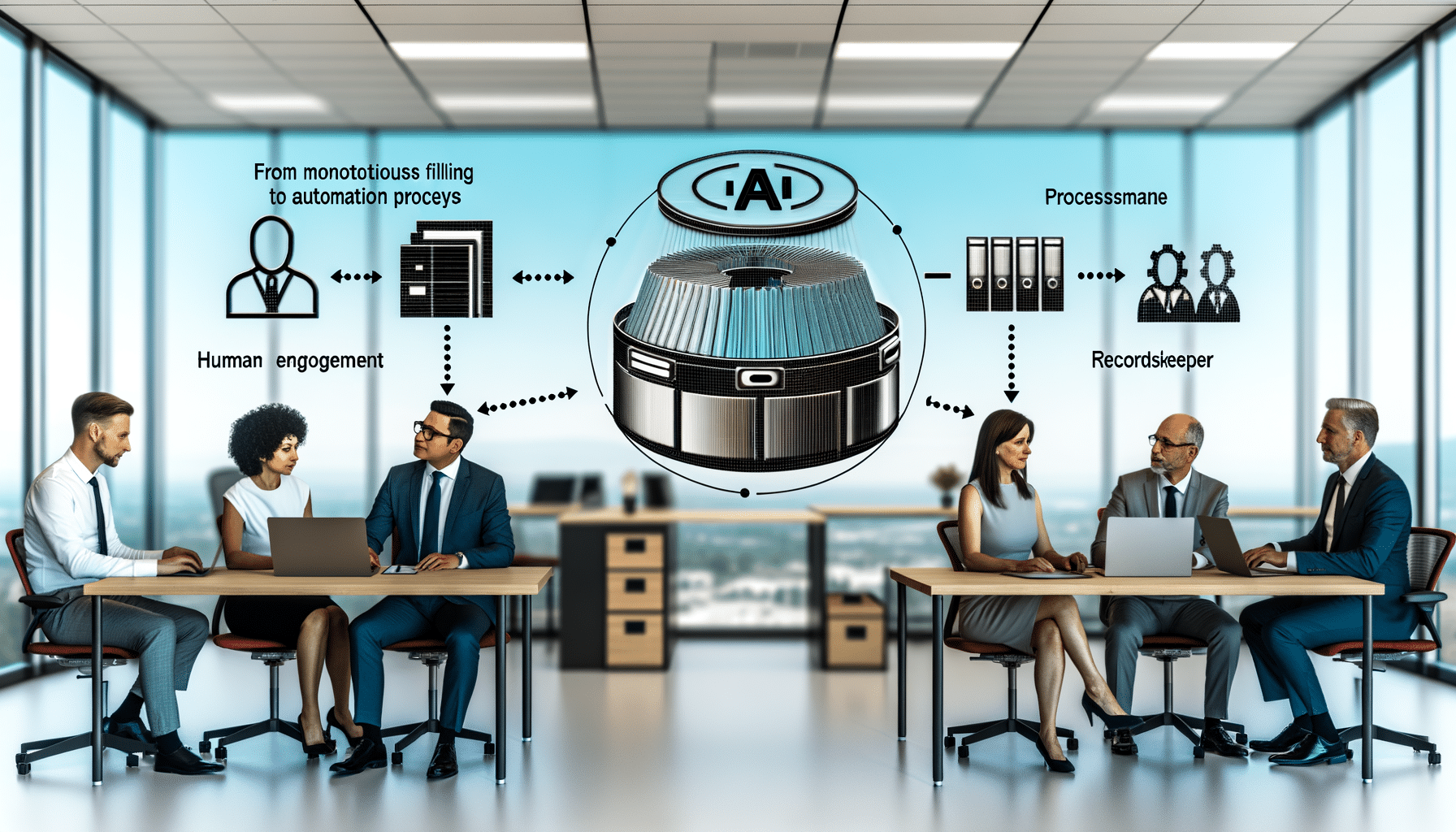- Automation
- July 26, 2023
Backup Automation: How AI and Machine Learning Are Changing the Game

Revolutionizing Backup Processes: The AI and Machine Learning Approach
In today’s fast-paced world, managing data effectively is not just a choice but a necessity. Over the years, I’ve seen tremendous evolutions in how we handle records and data, and it’s fascinating (and somewhat obligatory for a massive data nerd like myself) to witness firsthand how technology adapts to meet these ever-growing needs. As we dive into how AI and machine learning are transforming backup automation, allow me to share some insights that will illustrate the groundbreaking impacts of these technologies.
The Traditional Backup Landscape: A Glimpse into the Past
Before we delve into the present and future, I think it’s essential to understand where we’ve come from. Traditional backup methods have always been cumbersome, resource-intensive, and prone to human error. I recall numerous instances from my early entrepreneurial days where backup failures weren’t just common but expected. These traditional systems often required manual configuration, regular maintenance, and constant monitoring—all of which drained time and resources.
How AI & Machine Learning Simplify Backup Automation
This is where the magic happens. Today, AI and machine learning have revolutionized the realm of backup automation, streamlining processes, reducing errors, and enhancing efficiency across the board. Here’s how:
- Predictive Analysis: One of the standout features of machine learning in backup automation is its ability to predict when failures may occur. By analyzing patterns and learning from historical data, these systems can proactively address potential issues before they manifest.
- Adaptive Learning: I find the adaptive nature of AI exceptionally worthwhile. It learns and adjusts to the specific needs of your data. Unlike traditional methods that require manual tweaks, AI-driven backup systems auto-optimise according to workloads, ensuring optimal performance.
- Task Automation: Through AI, redundant and mundane backup tasks are automated, allowing IT teams to focus on strategic tasks rather than operational drudgeries. It’s fascinating how AI identifies tasks that were previously manual and automates them, effectively reducing the workload.
The Role of Intelligent Algorithms in Backup Automation
Speaking from experience, the beauty of intelligent algorithms is in their intuition. By employing smart algorithms, AI and machine learning can ensure not only timely backups but also the efficient allocation of storage resources. This real-time adaptability is what sets AI apart from its predecessors.
For instance, machine learning algorithms can determine which files are crucial for immediate backup and which can be archived for later. This prioritization not only conserves space but also accelerates the recovery process when needed.
Security and Compliance: Making the Perfect Partnership
As a founder constantly engaging with data-sensitive industries, I’m acutely aware of the significance of security and compliance. AI-enabled backup systems incorporate encrypted, secure pathways to transfer and store data. Machine learning further enhances security by detecting anomalies indicative of potential breaches, all while ensuring compliance with regulations like GDPR and HIPAA.
Moreover, AI aids in maintaining audit trails and generating compliance reports—this is not just about data safety; it’s about providing peace of mind and legal adherence.
Overcoming Challenges: Implementing AI in Backup Processes
It’s no secret that adopting new technologies comes with its own set of challenges. The foremost challenge I often faced was the initial integration. Ensuring that AI systems align seamlessly with existing infrastructure requires strategic planning and sometimes a bit of patience. However, the returns—a leaner, more adaptable system—far outweigh these initial concerns.
Embracing the Future: Next Steps
In my journey with RecordsKeeper.AI, I’ve realized the immense potential of fully leveraging AI and machine learning within backup automation. As we continue to innovate, my advice to businesses and organizations is to start small but think big. Assess your current backup processes, identify the pain points, and gradually integrate AI solutions. Soon, you’ll find the technology working for you, turning your backup strategy into a competitive advantage.
Concluding Thoughts: A Call to Action
As we wrap up on this journey through the world of AI and machine learning in backup automation, it’s clear that these technologies are not just trends—they are the future. For those of you managing data or involved in data security, I encourage you to explore these advancements further. By modernizing your approach with AI and machine learning, you’ll not only streamline operations but also secure a more resilient future.
To dive deeper into backup automation advancements or explore how RecordsKeeper.AI can serve your needs, I invite you to connect with me further. Let’s continue this conversation and explore the untapped potential of AI together.
Toshendra Sharma is the visionary founder and CEO of RecordsKeeper.AI, spearheading the fusion of AI and blockchain to redefine enterprise record management. With a groundbreaking approach to solving complex business challenges, Toshendra combines deep expertise in blockchain and artificial intelligence with an acute understanding of enterprise compliance and security needs.
Related Posts

The Future of Document Workflow Automation
Understanding the evolution of document workflow automation.
- November 16, 2024

Turn Tedious Filing into Automated Workflows With RecordsKeeper.AI
How to automate repetitive filing tasks with AI workflows.
- November 16, 2024
Archives
- December 2024
- November 2024
- October 2024
- September 2024
- August 2024
- July 2024
- June 2024
- May 2024
- April 2024
- March 2024
- February 2024
- January 2024
- December 2023
- November 2023
- October 2023
- September 2023
- August 2023
- July 2023
- June 2023
- May 2023
- April 2023
- March 2023
- February 2023
- January 2023
- December 2022
- November 2022
- October 2022
- September 2022
- March 2019
Want to get more content like this?
Signup to directly get this type of content to your inbox!!
Latest Post
Organizing External Auditor Access
- December 22, 2024
Document Control in Manufacturing Plants
- December 21, 2024
Handling Rush Financial Report Requests
- December 20, 2024
Managing Record Access After Staff Changes
- December 19, 2024





